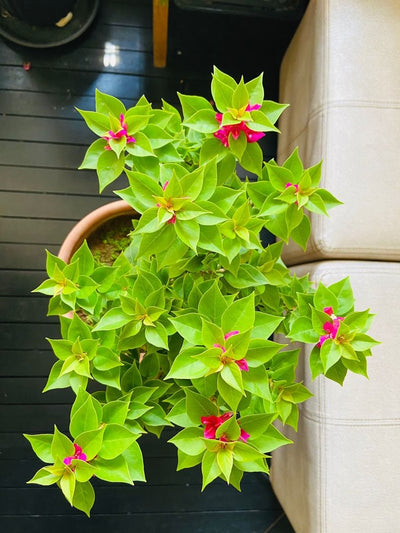Food and Beverage Spaces like hotel waste management in Hotels

Partnering with a waste broker to continually evaluate your food and beverage waste practices is a key component of hotel waste management in the hotel industry, but one that’s largely looked over. While the guest room may be the first area of waste to focus on, you can’t forget to analyze the area many guests find themselves frequenting throughout their stay: the hotel restaurant or bar area.
Most restaurant and hotel waste management is, unfortunately, unavoidable-a cost of running a restaurant. However, there are a few key insights to decrease excess and get a handle on the unwanted scraps and leftovers.

Hotels are the biggest consumers of resources and have a significant impact on waste production. Recycling would benefit the economy as well as the environment in the era of the green economy and green strategy. Hotels and restaurants are destined to produce significant volumes of food waste given the nature of their employment. The appropriate authorities, such as management and the government, are undoubtedly very concerned about this. Control measures must be implemented in some way to guarantee that the hotels and restaurants prosper in a welcoming environment. At many stages of hotel and restaurant operations, food waste can occur. Food waste can result from processing and preparing food products for a variety of reasons, including unmet demand, excess inventory, and ineffective processes, unskilled training of personnals , poor communication.
After the meal has been eaten, waste may also occur as a result of ordering huge portions, using ineffective service techniques, and menu approval by customers. Based on the types of food ingredients utilised, several waste types are produced at hotels and restaurants. Egg shells, potato and fruit peelings, bones, meal leftovers, and packaging materials are a few examples.
The methods used to manage hotel food waste differ from nation to nation and from organisation to organisation. Ordinarily, the order of importance is prevention, followed by reuse, recycling, and landfills. Others might rather optimise it if prevention doesn't work for them. This indicates that the garbage is used to feed both people and animals. If not, the trash can be composted or used to produce sustainable energy.
Achieve Hotel Waste Management

Unlike the physical bottles and wrappers found in the guest rooms, hotel restaurants act as an entirely different kind of waste stream. Even with meals that are eaten completely, a clean plate doesn’t necessarily mean a clean slate in the waste segregation, and it is part of hotel waste management. Hotel Food waste comes from an assortment of sources. Some of the common culprits are spoiled and out-of-date food, trimmings and peeling, inedible byproducts (bones, tea leaves), errors in the kitchen and general plate waste.
The first thing is to figure out what your organic waste baseline is by measuring the amount that’s thrown out and discarded week over week. Keeping track of categories like preparation, plate waste and spoilage is a good place to start. Once that target baseline is nailed down, create a plan to reduce that number of waste collection and proceed with hotel waste management technique. Offering portion sizes, using prepared ingredients and adding unused food to creative menu items can go a long way to eliminate organic waste inefficiencies. To cap everything off, make sure to empower the staff to review these waste goals monthly and celebrate the successes of hotel waste management.

Solutions to waste management in hotels
The need for waste management in hotels is critical because garbage disposal is becoming more and more challenging. Additionally, it makes sense from a business perspective. There are numerous strategies to improve waste management in the hotel sector, and businesses are making efforts to lessen some of the major sources, such as plastics and food. As with any effective waste management strategy, the best course of action is to avoid creating garbage in the first place, with reuse and recycling coming in second. There are now numerous instances of comprehensive hotel waste management in use.
Major hotel groups have begun to prohibit single-use plastics everywhere. In order to save an estimated 17 million plastic bottles and 100 million plastic bags, Rotana, for instance, said that it will eliminate all single-use plastic toiletries from its hotel rooms every year.
Conducting food waste audits :
Analyzing and monitoring food waste from the point of origin to the point of disposal is required. The quantity of food wasted and the number of customers entering the restaurant are the two main variables to be taken into account throughout the tracking. This information aids managers in identifying the primary cause of food waste.
Avoid wasting ingredients before they are prepared :
To help restaurant management understand how long food products must be stored before they can be used in the restaurant, an inventory review exercise must be carried out. By doing this, there is less chance of ordering too much and losing perishable food items. Additionally, it is essential to provide restaurant staff with the necessary training in food waste control.
Modern Hotel Waste Management Tool

Additionally, using a “smart” waste compactor to achieve hotel waste management from a waste broker can help you continually evaluate your food and beverage waste and save costs by avoiding unnecessary pickups when there may have been a lull in customer traffic or, on the flip side, have a pickup on demand when your hotel is experiencing a very busy time. For good and sustainable compost use Sadabahar composter vertical garden planter tower will help the best feature of it is self-fertilizing with inbuilt composter attached with planter that is available at Urban plants. This composter reduces the cost of dump and get best results of manufacturing best organic compost and mainly focused to achieve best hotel waste management.




Leave a comment